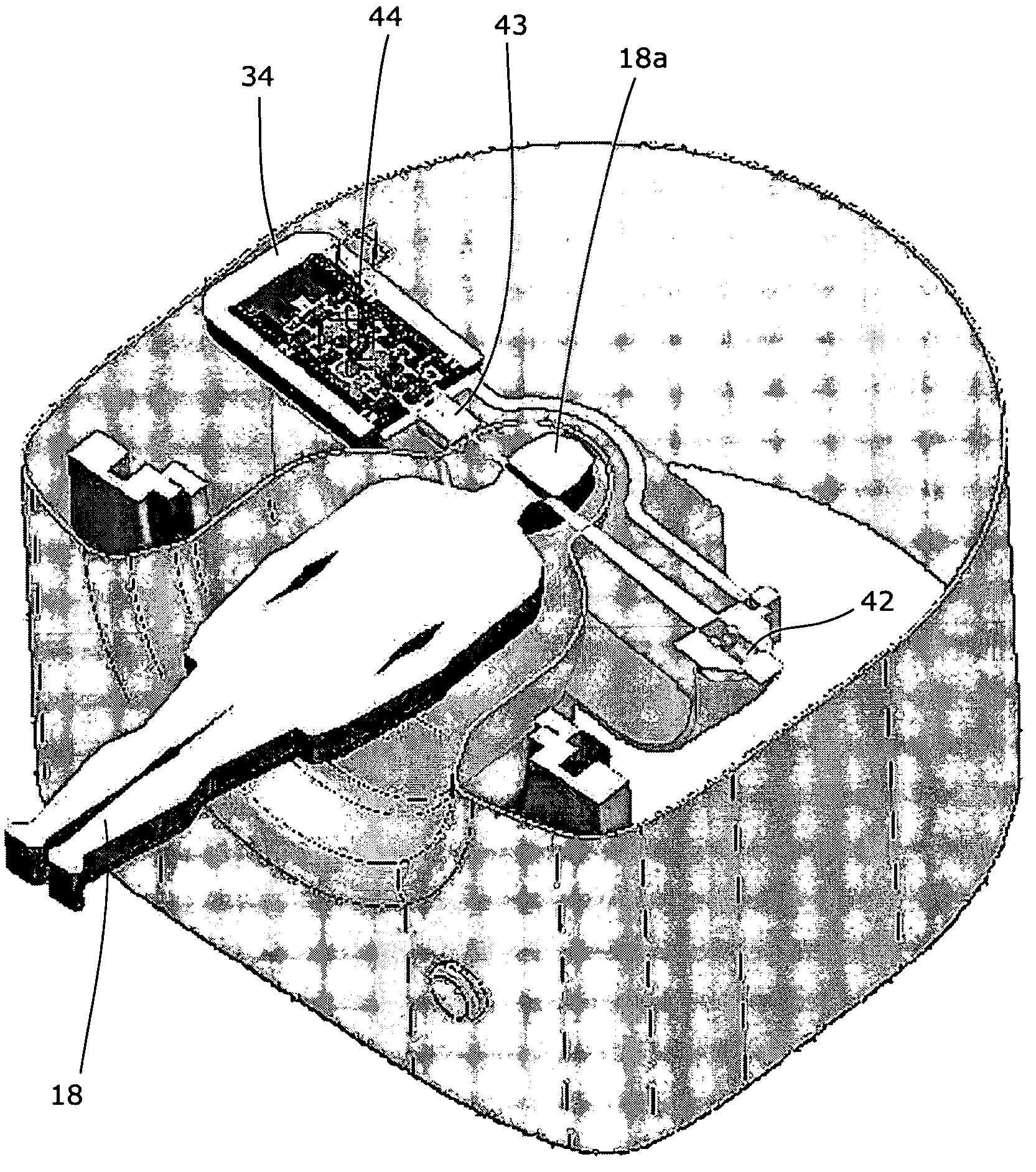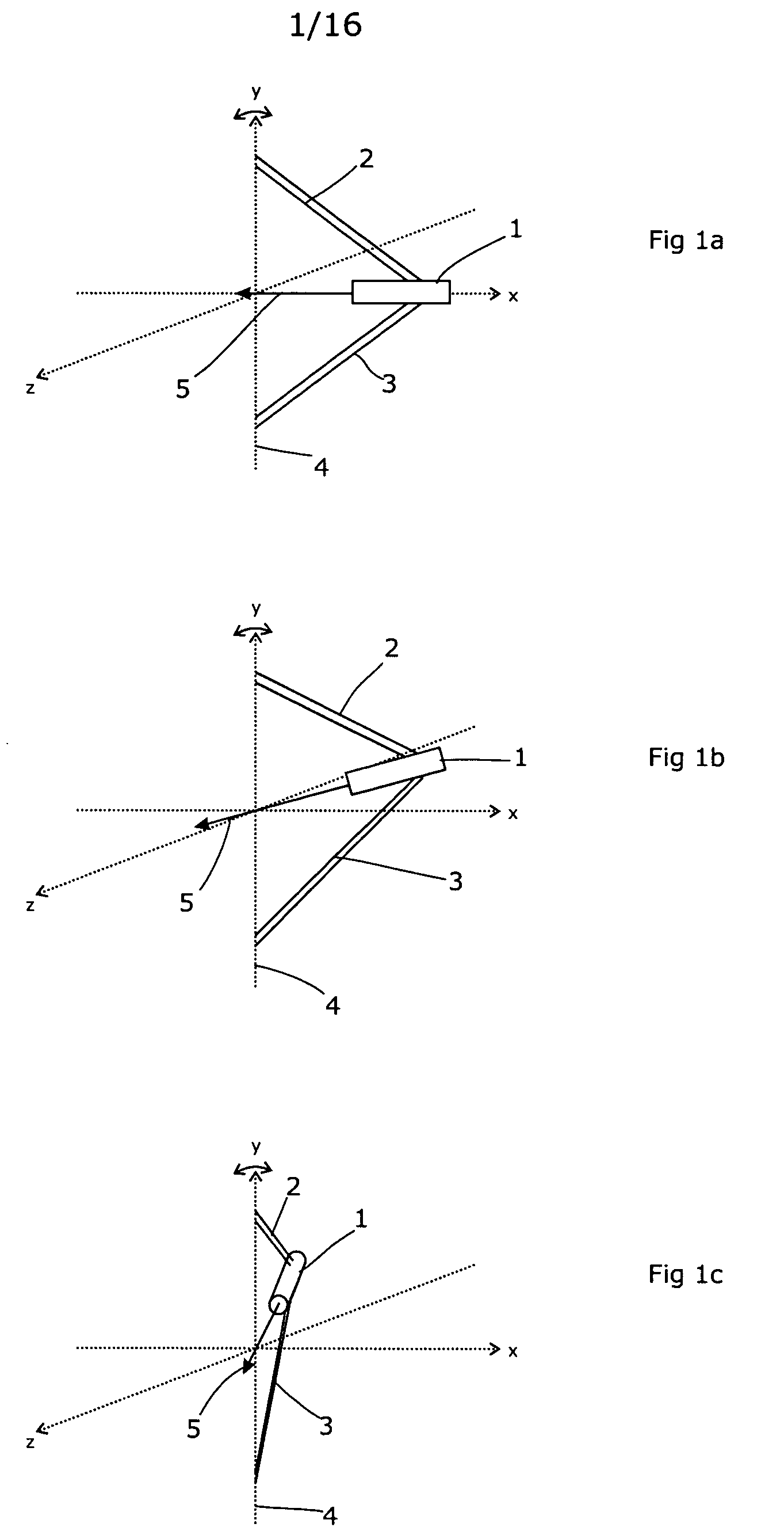Method and apparatus for treatment by ionizing radiation
a technology of ionizing radiation and treatment method, applied in the field of ionising radiation treatment device, can solve the problem that the patient may not be cured, and achieve the effect of increasing the flexibility of treatmen
- Summary
- Abstract
- Description
- Claims
- Application Information
AI Technical Summary
Benefits of technology
Problems solved by technology
Method used
Image
Examples
Embodiment Construction
[0047]FIGS. 1a, 1b and 1c, together with FIGS. 2a, 2b and 2c, show the general principle of operation according to the present invention. They show that the geometry adopted by the invention constrains the radiation source such that a wide variety of approach angles are possible, but that the source can only point towards the isocentre.
[0048] Further, they illustrate how such an arrangement can be achieved using only rotateable joints. Thus, once the device is suitably supported or balanced around those joints, the problems inherent in the Nakagawa et al arrangement are avoided.
[0049] There are two main rotation axes according to the invention. FIGS. 1a, 1b and 1c show the effect of rotation about one of the axes, while FIGS. 2a, ab and 2c show the effect of rotation about the other. It is envisaged that, in practice, both axes would be used simultaneously.
[0050]FIG. 1a shows the device in a rest state in which a source 1 is supported by rigid members 2, 3 which are each attached...
PUM
 Login to View More
Login to View More Abstract
Description
Claims
Application Information
 Login to View More
Login to View More - R&D
- Intellectual Property
- Life Sciences
- Materials
- Tech Scout
- Unparalleled Data Quality
- Higher Quality Content
- 60% Fewer Hallucinations
Browse by: Latest US Patents, China's latest patents, Technical Efficacy Thesaurus, Application Domain, Technology Topic, Popular Technical Reports.
© 2025 PatSnap. All rights reserved.Legal|Privacy policy|Modern Slavery Act Transparency Statement|Sitemap|About US| Contact US: help@patsnap.com



